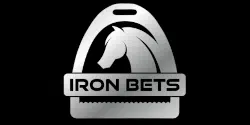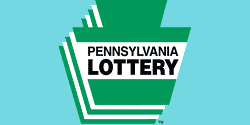Pennsylvania Online Gambling
Legal Pennsylvania online gambling options are diverse thanks to a massive gambling expansion bill passed in 2017.
Online casinos, poker sites, and sportsbooks are legal and regulated by the Pennsylvania Gaming Control Board (PGCB) to ensure a high level of consumer protection and responsible play.
Additionally, the Pennsylvania Lottery oversees online ticket sales, while the Pennsylvania State Horse Racing Commission regulates online horse racing betting.
Legal Pennsylvania Gambling Sites


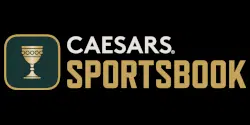






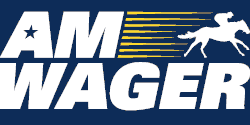


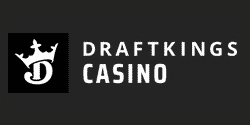
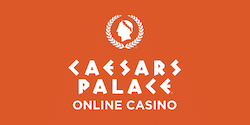

21+ and present in PA. T&Cs Apply. Gambling Problem? Call 1-800-GAMBLER.
Pennsylvania Online Gambling Overview
| Type of Gambling (minimum age to play) | Legal Status | Notes |
| Online Casinos (21+) | Legal/Regulated | Authorized under Act 42; PGCB oversees operations |
| Sweepstakes Casinos (n/a) | Illegal | PGCB classifies as unlicensed gambling; enforcement ongoing but limited |
| Online Poker (21+) | Legal/Regulated | Legal under Act 42; joined multi-state agreement in 2025 |
| Online Sports Betting (21+) | Legal/Regulated | Launched in 2019; numerous licensed operators |
| Daily Fantasy Sports (18+) | Legal/Regulated | PGCB licenses operators |
| Fantasy Pick’em Contests (n/a) | Illegal | Prohibited as mimicking prop bets; major operators unavailable |
| Online Lottery Sales (18+) | Legal/Regulated | PA iLottery offers draw tickets and instant win games |
| Online Horse Racing (18+) | Legal/Regulated | Advance deposit wagering permitted through licensed ADWs |
Pennsylvania Online Casinos
Online casinos are legal and regulated in Pennsylvania.
Pennsylvania legalized online gambling via HB 271 (Act 42 of 2017) in October 2017.
The law granted qualified operators the opportunity to apply for licenses to offer online slots, table games, and other casino-style games. The first Pennsylvania online casinos launched in 2019.
Although the Pennsylvania online gambling market is subject to some of the highest tax rates in the nation, players suffer no lack of options when choosing licensed casino sites.
Popular online casino brands in Pennsylvania include:
The Pennsylvania Gaming Control Board (PGCB) issues licenses and enforces regulations pertaining to consumer protection, data privacy, geolocation, age verification, and fair gambling.
Licensed operators offer hundreds of games spanning a range of categories, including live dealer table games.
Additionally, most Pennsylvania gambling sites provide extensive cross-promotional offerings and rewards programs integrated with brick-and-mortar casinos for hybrid experiences (e.g., online play earning food comps).
Budget needs drove Pennsylvania’s legalization efforts, with online slots taxed at 54% and table games taxed 16%.
The PGCB continues to monitor for unlicensed activity and emphasizes compliance with responsible gambling requirements, like mandated tools for customer-enabled deposit limits and self-exclusion.
Sweepstakes Casinos in Pennsylvania
Sweepstakes casinos are illegal in Pennsylvania.
The PGCB classifies sweepstakes platforms as illegal online gambling due to their resemblance to full-scale online gambling without proper oversight.
In April 2025, the PGCB issued cease-and-desist letters to 18 sweepstakes operators, prompting many to comply by halting services for Pennsylvania residents.
Key PGCB concerns include the lack of taxation, zero consumer protections, and potential violation of state gambling statutes under Title 18, Chapter 55.
However, the PGCB has struggled to fully eliminate sweepstakes operators because it lacks sufficient enforcement authority beyond issuing cease-and-desist letters.
Gaming Control Board representatives have told state lawmakers that there is limited action they can take to police illegal operators, leading to calls for legislative changes to Pennsylvania’s Gambling Act to explicitly ban all sweepstakes casinos and provide the PGCB with stronger regulatory tools.
Major platforms like Stake.us, McLuck Casino, and High 5 Casino exited the market in response to the letters, but officials have described ongoing enforcement as a “whack-a-mole” effort.
Legislative efforts in 2025, including a House co-sponsorship memo to prevent unlicensed operators from exploiting loopholes, highlight risks like inadequate age verification (often 18+ versus 21+ for regulated casinos) and an absence of anti-money laundering safeguards.
Pennsylvania gamblers should use state-licensed online casinos instead, which offer similar games but with verified fairness and protections.
Pennsylvania Online Poker
Online poker is legal and regulated in Pennsylvania.
The same 2017 law that authorized online casinos also paved the way for legal online poker.
The first licensed poker site, PokerStars, launched in November 2019, and the market has since expanded to include other major operators like WSOP.com, BetMGM Poker, and BetRivers Poker.
To play poker online in Pennsylvania, players must be at least 21 years old and physically located within the state’s borders. The PGCB oversees all licensed poker sites in Pennsylvania to ensure game integrity and the security of players’ funds.
A key development occurred in April 2025, when Governor Josh Shapiro signed the Multi-State Internet Gaming Agreement (MSIGA), allowing Pennsylvania to share player pools with states like New Jersey, Michigan, Delaware, Nevada, and West Virginia.
Pennsylvania’s MSIGA membership has increased prize pools and traffic significantly.
Pennsylvania Online Sports Betting
Online sports betting is legal and regulated in Pennsylvania.
Act 42 of 2017 allows wagering on professional and college sports via licensed sportsbook apps and websites. The first Pennsylvania sports betting sites launched in 2019, and the state now boasts one of the nation’s largest sportsbook markets by total annual handle.
Some of Pennsylvania’s most prominent online sportsbooks include:
Pennsylvania sports betting regulations require every licensed operator to partner with a land-based casino or racetrack and ensure consumer protection via strict requirements for:
- Consumer protection and fairness
- Age, identity, and location verification
- Data security
- Responsible gambling
The state imposes a 36% tax rate on sports betting revenue, which contributes significant funds to the state’s general fund each year.
Pennsylvania Daily Fantasy Sports
Daily fantasy sports (DFS) are legal and regulated in Pennsylvania.
Act 42 classifies DFS contests as games of skill, but operators are still required to obtain PGCB licenses, and fans must be 18+ to participate.
Leading Pennsylvania fantasy apps include DraftKings and FanDuel, which cover the NFL, NBA, MLB, and many additional leagues. Guaranteed prize pools and free-to-play contests are a regular occurrence.
Pennsylvania DFS regulations include consumer protection mandates like requiring operators to segregate player account balances from operating funds and monitoring for signs of unfair play.
Fantasy Pick’em Contests in Pennsylvania
Fantasy pick’em contests are illegal in Pennsylvania.
The PGCB prohibits pick’em fantasy formats that mimic proposition betting, such as predicting over/under on individual player stats against the house. Board members view fantasy pick’em contests as chance-based rather than luck based and essentially prop betting repackaged as “daily fantasy.”
Pennsylvania’s crackdown on fantasy pick’em contests continued a trend of regulatory actions in multiple states, where pick’em was deemed too similar to sports wagering.
Additionally, PGCB regulations require DFS contests to involve multi-participant competitions, not player-vs-house models. However, even peer-to-peer pick’em variants remain prohibited in Pennsylvania.
Pennsylvania Online Lottery Sales
Online lottery sales are legal and regulated in Pennsylvania.
The Pennsylvania Lottery launched its online platform in 2018, allowing players to legally purchase tickets for popular draw games such as Powerball and Mega Millions. In addition to draw games, PA iLottery also offers a variety of instant-win games that can be played online.
The Department of Revenue oversees Pennsylvania’s online lottery operations and ensures that PA iLottery restricts sales to in-state residents only. The minimum age to buy PA Lottery tickets online is 18.
PA Lottery proceeds fund senior programs to the tune of $1 billion+ annually.
Pennsylvania Online Horse Racing
Online horse racing betting is legal and regulated in Pennsylvania.
Advance deposit wagering (ADW) allows pari-mutuel betting on races via licensed online racebooks.
The State Horse Racing Commission, under the Department of Agriculture, regulates pari-mutuel wagering to ensure track integrity, animal welfare, and issues licenses to qualified ADWs.
Read more:
Pennsylvania Gambling Regulators
Pennsylvania maintains a structured regulatory framework for gambling, divided among specialized agencies:
- Pennsylvania Gaming Control Board (PGCB): Oversees casinos, online gambling (including poker and sports betting), video gaming terminals, and fantasy sports; enforces compliance and promotes responsible gaming.
- Pennsylvania Lottery: Manages state lottery operations, including iLottery sales and draw games.
- State Horse Racing Commission: Regulates horse racing, including advance deposit wagering and track activities.
Responsible Gambling Resources in Pennsylvania
Multiple tools and support resources are available in Pennsylvania for gamblers with questions or concerns about problem gambling. Additionally, the Pennsylvania Gaming Control Board maintains a statewide self-exclusion program that covers multiple forms of gambling.
Pennsylvania Self-Exclusion Resources
- PGCB Self-Exclusion: Covers casinos, iGaming, sports wagering, VGTs, and fantasy contests; options for 1-year, 5-year, or lifetime bans; enrollment online or via PGCB offices.
- PA iLottery Self-Exclusion: Managed by the Pennsylvania Lottery; allows limits or bans on online purchases.
- ADW Self-Exclusion: Individual operators like TwinSpires offer tools for horse racing wagering limits or exclusions.
Pennsylvania Responsible Gambling Organizations
- PGCB Responsible Gambling Portal: Offers resources for problem gamblers; information for anyone with questions about responsible gambling, and statewide self-exclusion tools
- Council on Compulsive Gambling of Pennsylvania (CCGP): Provides 24/7 helpline (1-800-GAMBLER), counseling referrals, and education programs.
- National Problem Gambling Helpline: 1-800-GAMBLER for confidential support, text 800GAM, or chat at 1800gamblerchat.org.
- Pennsylvania Department of Drug and Alcohol Programs: Offers problem gambling treatment resources and prevention initiatives.


